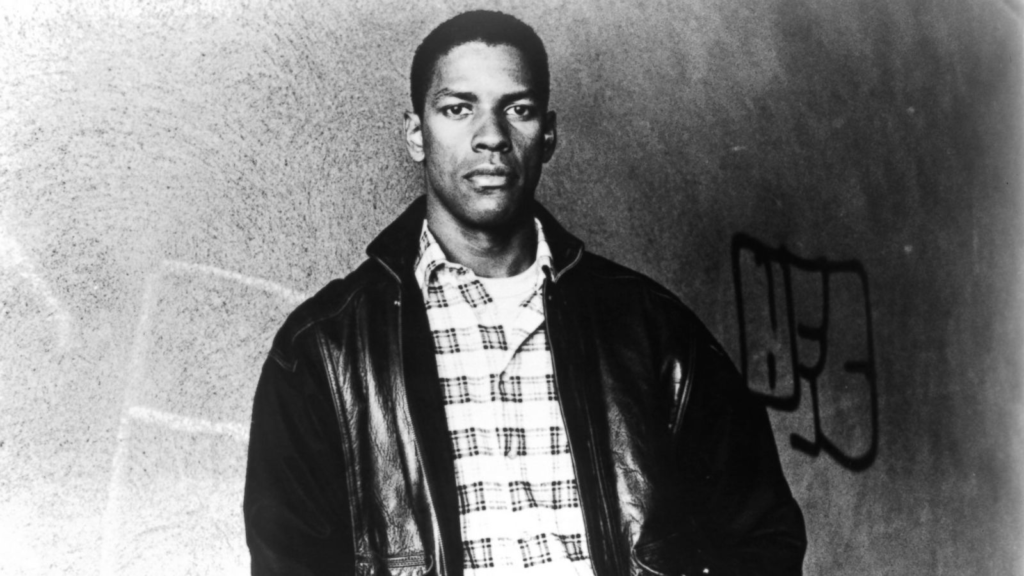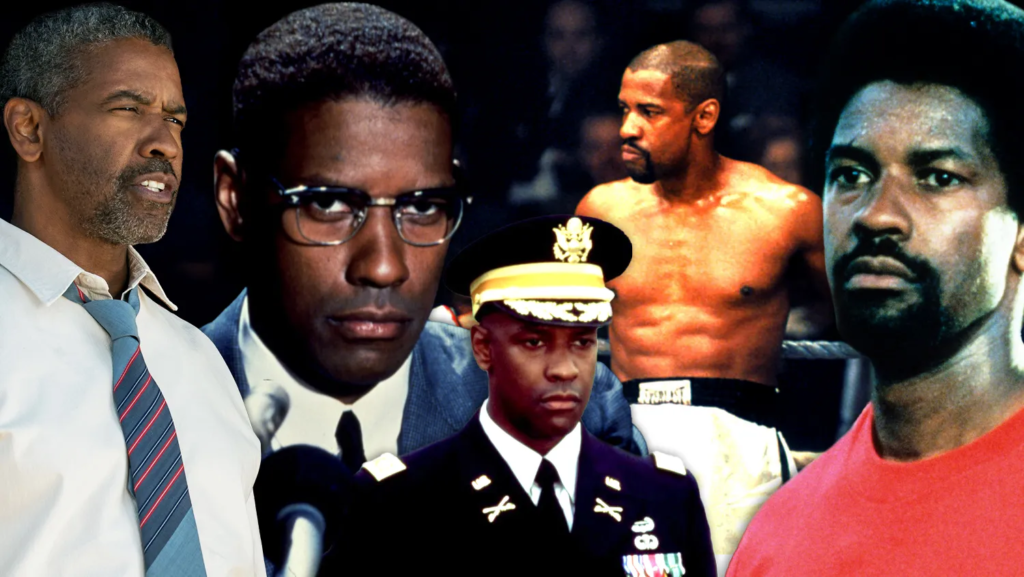Denzel Washington stands as one of the most revered and influential actors of all time. With a career spanning over four decades, he has consistently delivered performances that blend intensity, vulnerability, and charisma. As an actor, producer, and director, Washington has redefined the craft and inspired countless others to strive for excellence. Known for his iconic roles in films like Training Day, Malcolm X, and Glory, as well as his contributions to theater, Washington’s impact transcends Hollywood. Let’s explore the life, career, and legacy of this legendary figure.
Early Life: Building a Foundation for Greatness
Denzel Hayes Washington Jr. was born on December 28, 1954, in Mount Vernon, New York. Raised by his Pentecostal minister father and beauty salon owner mother, Washington’s childhood instilled a strong sense of discipline, faith, and community. However, his parents’ divorce when he was 14 marked a turning point in his life.
After high school, Washington attended Fordham University, initially pursuing a degree in journalism. It was during his time at Fordham that he discovered his passion for acting. Encouraged by his professors, he performed in a student production of Eugene O’Neill’s The Emperor Jones, sparking his love for the stage. Washington later honed his craft at the American Conservatory Theater in San Francisco, setting the stage for his illustrious career.
Washington’s disciplined upbringing and discovery of acting during college laid the groundwork for his future as a Hollywood legend.

Breaking into Hollywood: Rising Star
Washington’s first major break came with his role in the television medical drama St. Elsewhere (1982–1988), where he played Dr. Philip Chandler. His work on the series showcased his talent and made him a household name. During this time, Washington also began building a film career with roles in A Soldier’s Story (1984) and Cry Freedom (1987), where he earned his first Academy Award nomination for portraying South African activist Steve Biko.
His role in Cry Freedom marked the beginning of Washington’s reputation for tackling socially significant and challenging roles.

Hollywood Stardom: From Glory to Malcolm X
The turning point in Washington’s film career came with Glory (1989), where he portrayed a defiant soldier in the 54th Massachusetts Infantry during the Civil War. His powerful performance earned him his first Academy Award for Best Supporting Actor.
In 1992, Washington took on the monumental role of Malcolm X in Spike Lee’s biographical film. His transformation into the civil rights leader was hailed as one of the greatest performances in film history, earning him an Academy Award nomination for Best Actor.
Washington’s work in Glory and Malcolm X solidified his reputation as one of Hollywood’s finest actors.

Peak Career: A Legacy of Excellence
Washington’s versatility has allowed him to excel in a wide variety of roles. From his morally complex performance in Training Day (2001), which earned him the Academy Award for Best Actor, to his leadership as Coach Herman Boone in Remember the Titans (2000), Washington consistently delivers unforgettable performances.
As a director, he has also made his mark with films like Antwone Fisher (2002) and Fences (2016), which was nominated for four Academy Awards. His directorial work reflects his dedication to telling meaningful, character-driven stories.
Washington’s range as an actor and filmmaker continues to elevate Hollywood storytelling.

Humanitarian Efforts and Mentorship
Beyond acting, Washington is known for his philanthropy and mentorship. He has been a consistent supporter of organizations like the Boys & Girls Clubs of America, crediting the organization with shaping his own youth. Washington has also mentored aspiring actors, offering guidance and support to the next generation of talent.
Washington’s commitment to giving back and mentoring future artists underscores his character and integrity.

Legacy: An Actor for the Ages
Denzel Washington’s influence on Hollywood and the broader cultural landscape is immeasurable. With countless accolades, including two Academy Awards, a Tony Award, and a Presidential Medal of Freedom, his career is a testament to hard work, talent, and an unwavering dedication to storytelling.
Washington’s legacy is not just his films but his impact on the industry and his commitment to meaningful change.

Conclusion
Denzel Washington is more than a legendary actor—he is a beacon of excellence, resilience, and inspiration. Whether commanding the screen or uplifting others, Washington’s contributions to the world of entertainment and beyond will resonate for generations. As a performer and a person, he continues to be a shining example of what it means to lead with talent, integrity, and purpose.